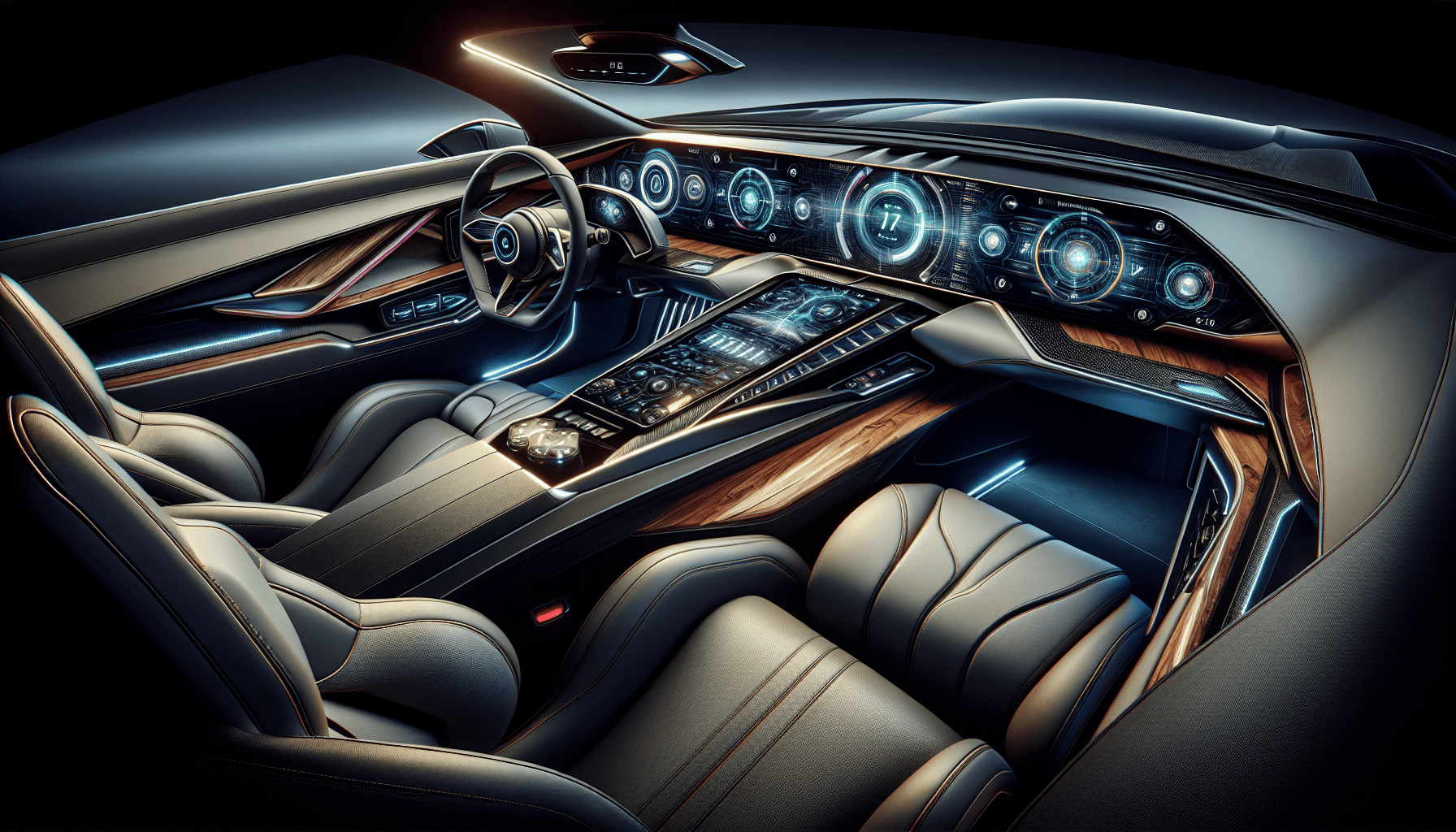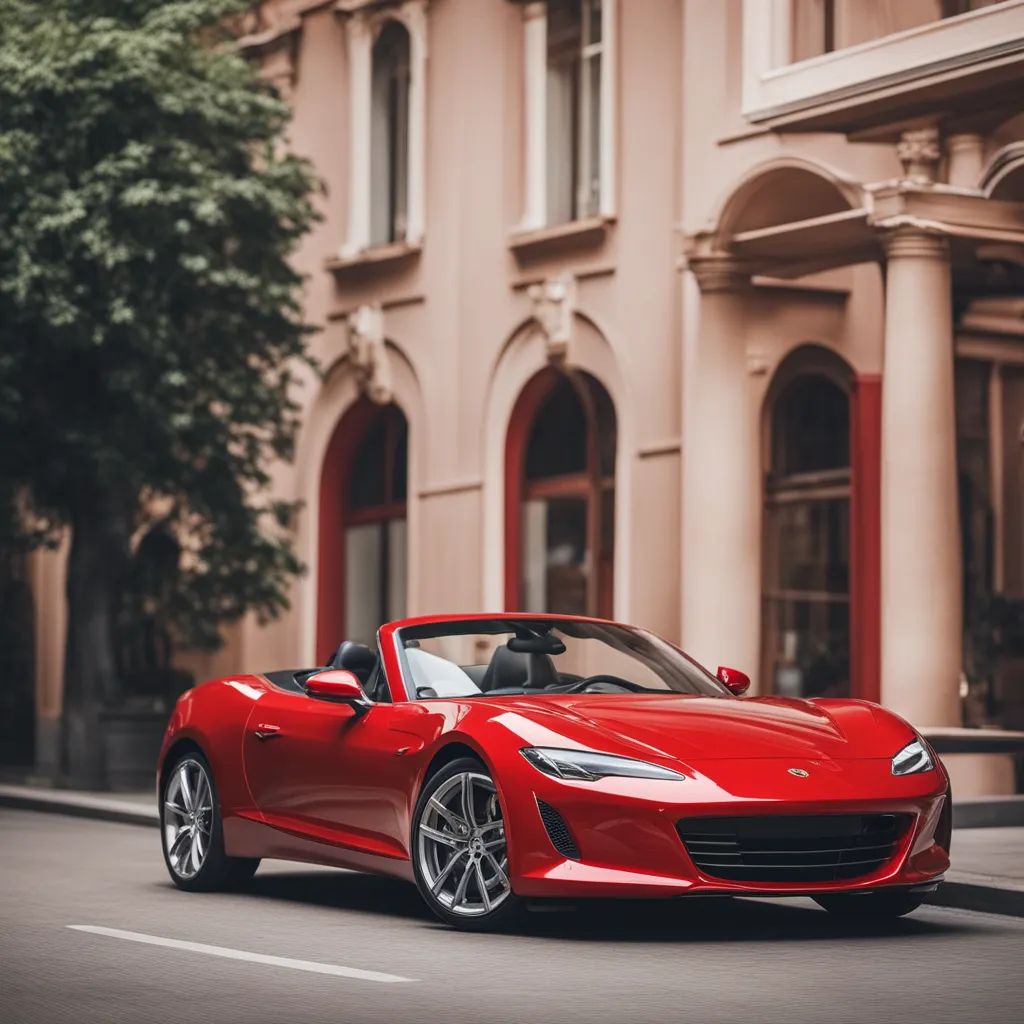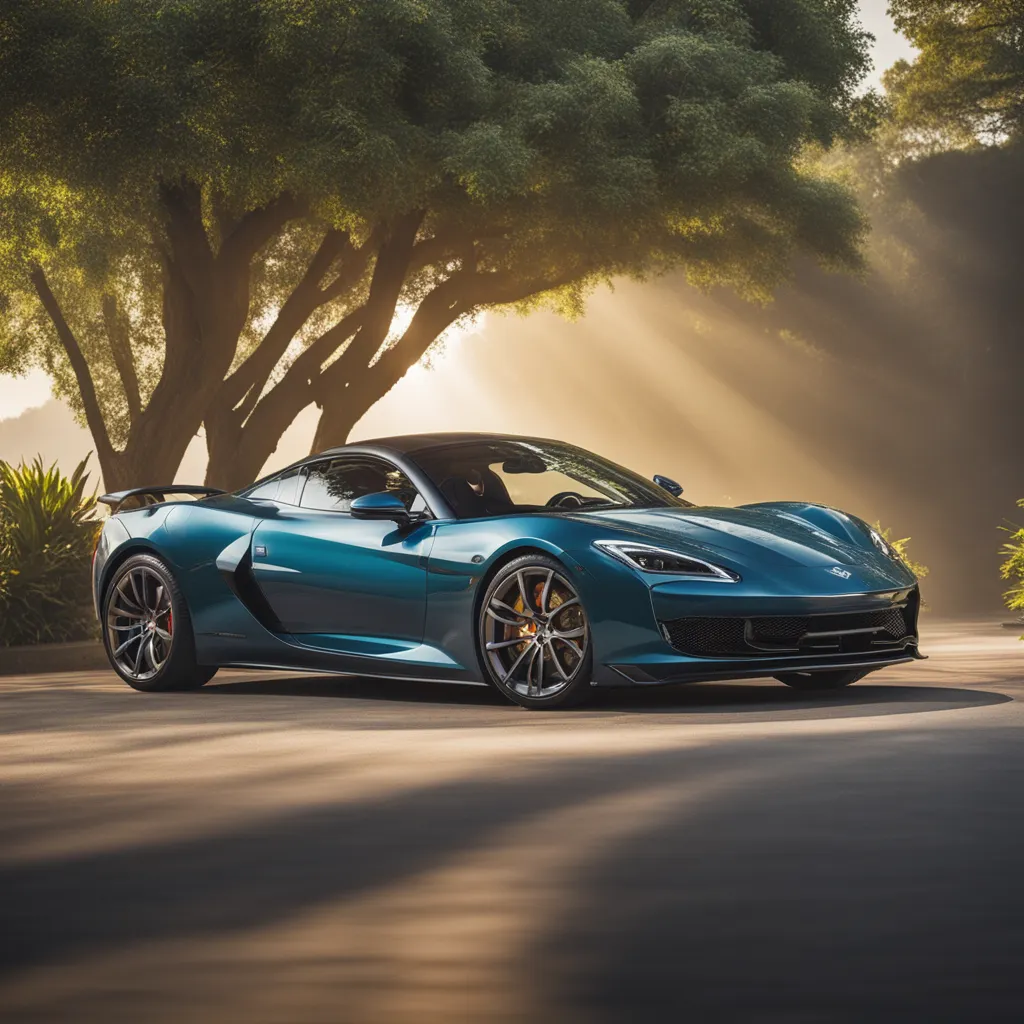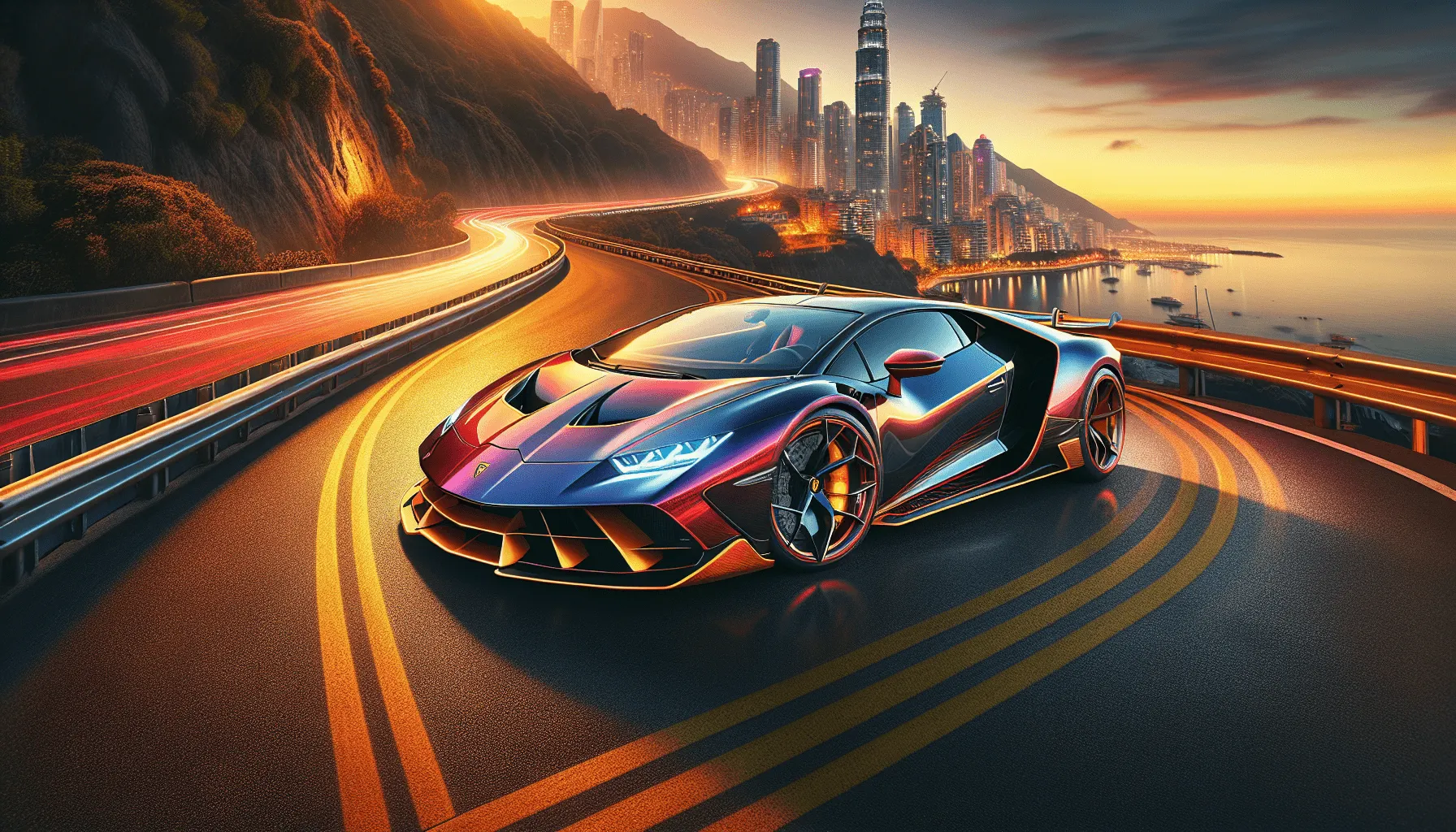Exploring the Allure of Exotic Cars
What is it about exotic cars that captivates the imagination and stirs a sense of desire within you?
The appeal of these automotive masterpieces transcends mere functionality, often embodying artistry, performance, and status. As you navigate through the fascinating world of exotic cars, you will uncover the intricate layers that contribute to their allure.

Understanding Exotic Cars
Exotic cars are often defined by their unique designs, high performance, limited production runs, and premium pricing. These vehicles are, however, more than just means of transportation; they represent a lifestyle, an aspiration, and an appreciation of engineering excellence.
Characteristics of Exotic Cars
When assessing what truly defines an exotic car, several key attributes stand out:
Performance: Exotic cars typically possess powerful engines, advanced aerodynamics, and superior handling capabilities. These features contribute to extraordinary acceleration and speed.
Design: The aesthetics of exotic cars are striking and original, often boasting innovative shapes and colors that draw attention. Exotic car manufacturers prioritize a design ethos that sets them apart from mainstream automotive brands.
Scarcity: Limited production runs create exclusivity, making ownership a distinct privilege. Many exotic cars are produced in small numbers, enhancing their desirability among collectors and aficionados.
Heritage: The history and legacy of exotic car manufacturers often play a critical role in their appeal. Prominent brands like Ferrari, Lamborghini, and McLaren have rich stories laden with motorsport achievements and groundbreaking advancements in automotive technology.
The Experience of Driving an Exotic Car
For many enthusiasts, the experience of driving an exotic car surpasses any ordinary driving scenario. You may find that the sensory engagement— the sound of the engine, the feel of the steering, and the thrill of acceleration—creates a unique emotional connection.
Sensory Details
The sensory experience is multi-dimensional:
- Sound: The engine notes of an exotic car often evoke exhilaration, with each rev of the engine offering a distinct auditory pleasure.
- Touch: The feel of high-quality materials within the cabin and the precision of the steering wheel enhance your tactile experience behind the wheel.
- Sight: The breathtaking design of an exotic car often captures the imagination, from sleek lines to bold colors that command attention.
The Emotional Appeal
Exotic cars tap into deep emotional currents, representing freedom, success, and a sense of adventure. Driving an exotic car can evoke feelings of prestige and accomplishment as you forge an identity anchored in personal ambition and achievement.
Symbolism of Wealth and Status
For many, these vehicles symbolize not only financial success but also a chance to engage in a lifestyle marked by luxury. The ownership of an exotic car often positions individuals within certain social circles, signifying exclusivity and success.
Major Exotic Car Manufacturers
In the world of exotic cars, several manufacturers have solidified their positions as leaders in innovation and design. Understanding these key players provides insight into the craftsmanship and culture surrounding exotic vehicles.
Ferrari
Ferrari stands as a paragon of success in the automotive world, with its rich racing heritage and iconic design language. Established in 1939 by Enzo Ferrari, the brand is synonymous with high-performance sports cars.

Lamborghini
Lamborghini is another name that evokes passion for performance and design. Founded by Ferruccio Lamborghini in 1963, the brand is renowned for its aggressive styling and powerful V10 and V12 engines.

Maclaren
McLaren Automotive, distinguished by its engineering excellence and innovative technologies, focuses on building lightweight vehicles with a fine balance of speed and handling. Founded in 1985, it has quickly risen to prominence.
The Role of Technology in Exotic Cars
The integration of cutting-edge technology in exotic cars has become a significant factor contributing to their allure. Various advancements in engineering, materials, and electronic systems have elevated these vehicles beyond traditional capabilities.
Advanced Engineering
The use of lighter materials, such as carbon fiber and aluminum, plays a crucial role in enhancing performance. Engineers minimize vehicle weight to improve acceleration and handling while maintaining structural integrity.
Aerodynamics
Aerodynamic enhancements—such as active spoilers, diffusers, and sleek body shapes—allow exotic cars to exert greater downforce while reducing drag. This optimization translates into improved stability at high speeds and heightened cornering abilities.
Innovative Electronic Systems
Exotic car manufacturers have also begun incorporating sophisticated electronic systems that enhance the driving experience.
Such advancements may include:
- Adaptive Traction Control: Dynamic control systems adjust power distribution for optimal traction based on road conditions.
- Launch Control Systems: These systems optimize acceleration from a standstill, helping the driver achieve maximum speed without losing control.
- Active Suspension: Adjustable suspension settings allow for dynamic changes in ride quality and handling characteristics based on driving conditions.
The Market for Exotic Cars
The market for exotic cars reflects not only the fervor of enthusiasts but also broader economic trends. Factors such as consumer preferences, global economic stability, and technological advancements influence the dynamics of this niche market.
Pricing and Valuation
Exotic cars often command high prices, with some models fetching millions at auctions. The rarity of limited-edition vehicles and their performance capabilities drive a competitive resale market. The pricing structures can vary significantly based on model, manufacturer, and condition.
Appreciation vs. Depreciation
While some exotic cars maintain or even appreciate in value over time, others may experience depreciation.
The fluctuations in market value can result from various factors:
- Brand Heritage: Established brands like Ferrari may see their cars appreciate due to a robust collector community.
- Production Numbers: Limited editions typically appreciate more than mass-produced models due to scarcity.
Demographics of Exotic Car Buyers
Exotic car ownership is often clustered within specific demographics characterized by wealth, influence, and passion for the automotive arts. Understanding these demographics sheds light on consumer behavior in the market.
Age and Income
Research indicates that the average exotic car buyer is predominantly male, typically aged between 30 and 60, with a high net worth. Buyers often include successful entrepreneurs, business executives, and retired professionals seeking luxury and performance.
Owning an Exotic Car
The journey of owning an exotic car encompasses various responsibilities and pleasures. Understanding the intricacies involved can prepare you for this unique experience.
Maintenance and Care
Owning an exotic car entails a commitment to maintenance and care that differs significantly from standard vehicles.
The high-performance components require specialized knowledge:

Maintenance Aspect Description Regular Servicing Scheduled maintenance, including oil changes and inspections, is critical.
Tire Care Proper tire maintenance, including monitoring tire pressures and wear, is essential for performance and safety. Specialized Repairs Finding certified mechanics with knowledge of exotic car brands is vital for proper repairs. Insurance
Considerations
The insurance landscape for exotic cars can be intricate. Factors such as value, performance capabilities, and driving history should be evaluated to ensure proper coverage.
Types of Insurance
- Agreed Value Coverage: This policy ensures that you receive a predetermined amount, agreed upon at the onset, in case of total loss.
- Tracking Insurance: This type is designed specifically for collectors and includes provisions for vehicles in transit and storage.
The Cultural Impact of Exotic Cars
Exotic cars transcend the automotive realm, leaving a profound impact on popular culture. Their depiction in media, art, and social discourse contributes to their enduring appeal.
Representation in Media
Exotic cars frequently appear in films, television, and video games, shaping public perception and aspiration. Iconic films featuring exotic cars have propelled brands into the public consciousness, closely associating them with glamour and power.
Iconic Films
- "The Italian Job" (2003): Featuring Mini Coopers and Lamborghini, this film showcases the excitement of car chases.
- "The Fast and the Furious" Franchise: This series has turned exotic cars into symbols of speed, culture, and rebellion.
Influence on Social Media
The rise of social media platforms has fueled global interest in exotic cars. Platforms like Instagram and YouTube are saturated with content showcasing the latest models, reviews, and personal experiences—further enriching the car enthusiast community.

The allure of exotic cars remains a complex interplay of performance, design, heritage, and emotional connection. As you examine the landscape of this captivating world, it becomes clear that these vehicles extend far beyond mere transportation; they embody aspirations and values intrinsic to personal identity and social engagement.
Engaging with the phenomena of exotic cars allows you a glimpse into a world where engineering meets artistry, and passion drives performance. Whether aspiring to own one or simply appreciating the magnificence from afar, the impact of exotic cars resonates deeply within the cultural fabric of society. As you immerse yourself in this world, you may find a renewed appreciation for the artistry and innovation that define these remarkable machines.




